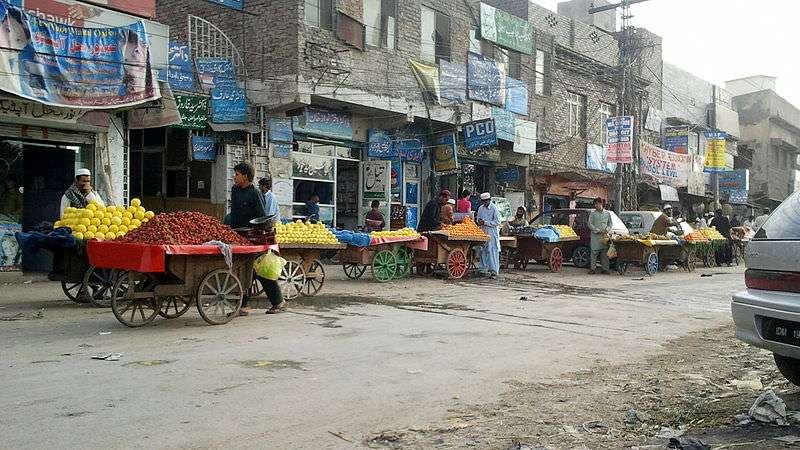Shadow Economy Booms as People Flee Red Tape and Poverty in Developing Countries

We may need to stop calling it the "shadow" economy, since off-the-books work, manufacturing, and services hidden from regulators and the taxman are the rule rather than the exception in much of the world. That's the takeway lesson from research published in the Asia Pacific Journal of Management, which finds that informal entrepreneurship makes up the majority of economic activity in developing countries. Shadow activity is a necessity for many people trying to make a buck, but those people would be better off, researchers say, if their political and economic institutions were freer and more welcoming to private enterprise so that people could operate above-board and with the full protection of the law.
Shadow economic activity is separate from "black market" activity, referring to the provision of labor, goods, and sevices that would be legal if taxes were paid and regulations obeyed. It's also the way things are done in many places. The Imperial College of London press release announcing the article by Professor Erkko Autio and Dr Kun Fu points out:
In a study of 68 countries, Professor Erkko Autio and Dr Kun Fu from Imperial College Business School estimated that business activities conducted by informal entrepreneurs can make up more than 80 per cent of the total economic activity in developing countries. Types of businesses include unlicensed taxicab services, roadside food stalls and small landscaping operations.
This is the first time that the number of entrepreneurs operating in the shadow economy has been estimated.
The researchers found that Indonesia has the highest rate of shadow economy entrepreneurs, with a ratio of over 130 shadow economy businesses to every business that is legally registered. After Indonesia the highest rates of shadow economy entrepreneurs are found in India, the Philippines, Pakistan, Egypt and Ghana.
That people choose to risk the wrath of tax collectors and regulators—and to give up the benefits of access to the courts, insurance, and other aspects of the above-ground economy—is taken by economists as a sign that legal, tax, and regulatory institutions are strangling would-be entrepreneurs and laborers.
In a 2010 paper for the World Bank, Friedrich Schneider, one of the world's foremost experts on shadow economic activity, writing with Andreas Buehn and Claudio E. Montenegro, argued that "the overall tax and social security contribution burdens are among the main causes for the existence of the shadow economy." They also noted that "[i]ncreased intensity of regulations is another important factor that reduces the freedom of choice for individuals engaged in the official economy," and they cite research by others concluding that "every available measure of regulation is significantly correlated with the share of the unofficial economy."
Autio and Kun, in the current paper, come to similar conclusions. They write:
The institutional qualities of a society and its economy—such as economic freedom (Hasan, Quibria, & Kim, 2003), the presence of policies that condition the operation of private sector (Hasan, Mitra, & Ulubasoglu, 2007), and institutions regulating the balance of political power and the structure of the bureaucratic system—play an important role in either facilitating or inhibiting economic growth and alleviating poverty (Lakshman, 2003). By inhibiting economic dynamism, poorly functioning institutions can decrease the productivity and innovativeness of an economy, confine the benefits of growth to a narrow elite, and impede the alleviation of poverty.
Their reference to "policies that condition the operation of private sector" cites a paper that sees benefits from "good governance" and a "strong commitment to the rule of law." That paper also finds that "less restrictive regulations pertaining to starting a business are associated with higher economic growth as well as lower rates of $2-a-day poverty."
So, when you have a country, like Indonesia, where 130 out of every 131 businesses are operating illegally, you can be pretty sure that the local politicians and bureaucrats have made it damned near impossible to start a business legitimately.
That's become the norm in much of the world. And while it's impressive that people can innovate around obstructionist officials, the world would be a healthier and more prosperous place if those officials would just get the hell out of the way.


Show Comments (26)